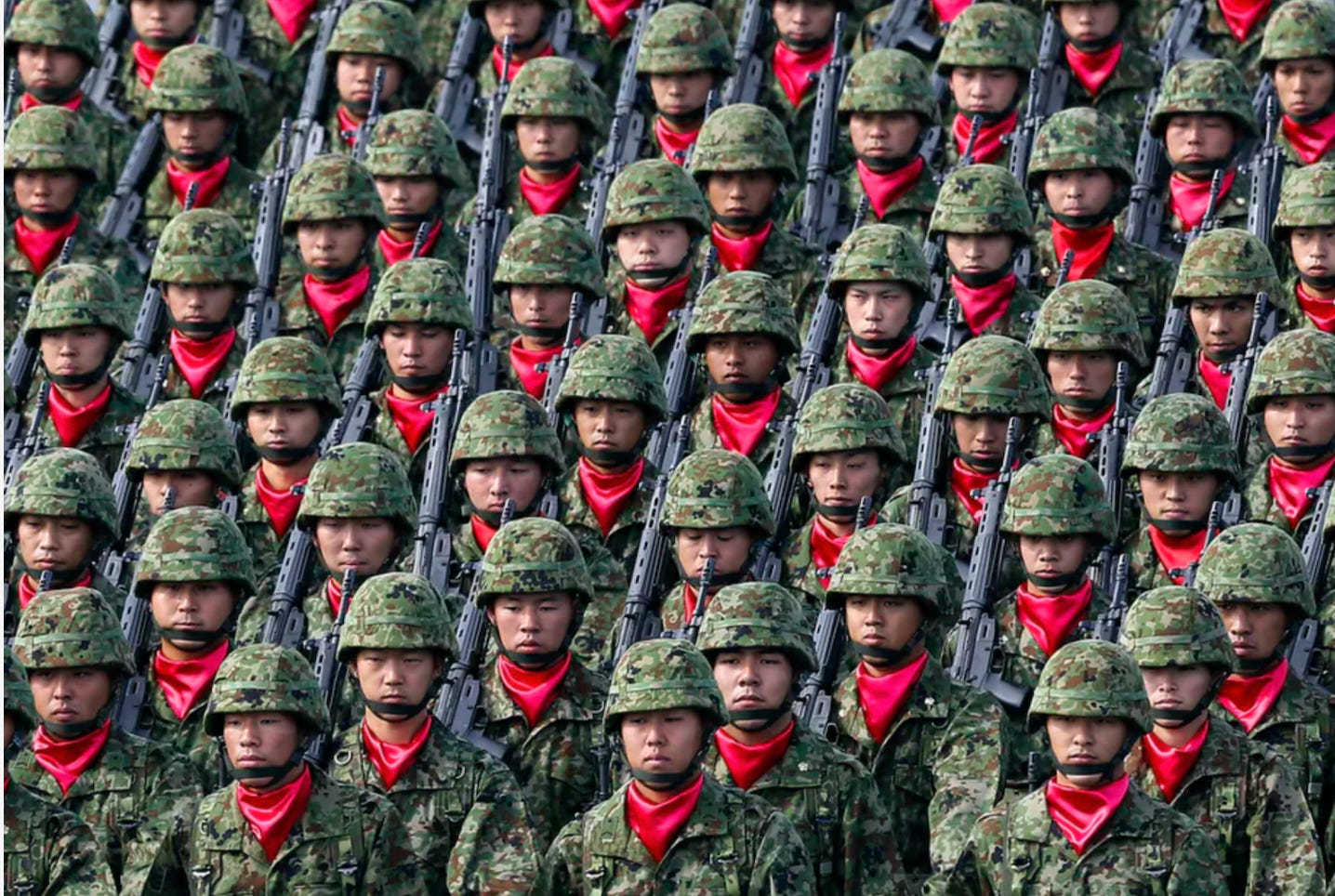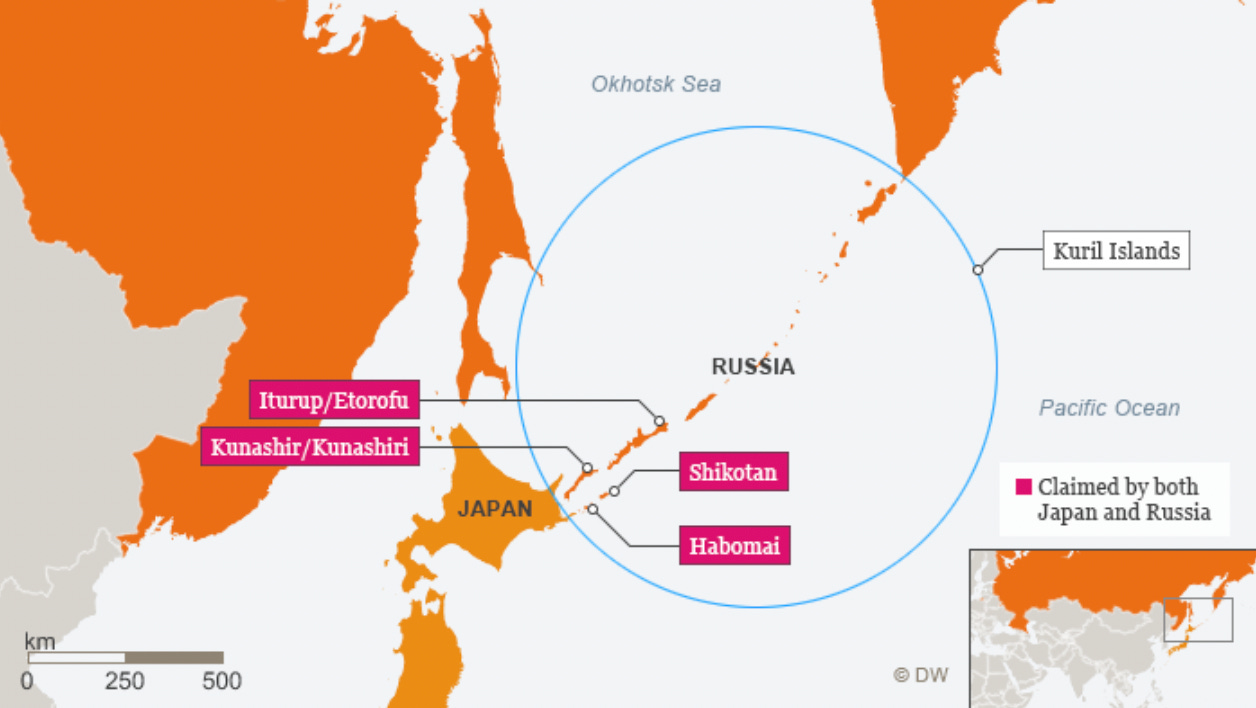Japan and Germany were not defeated in the Second World War. They were demolished. Even so, both miraculously rebuilt their economies which are now the third and fourth largest on the planet, respectively, after the US and China. Their martial hierarchies were dismantled and replaced with defense forces and pacifist constitutions — imposed on them by the US during post-war occupations. While all this was a good idea, given their predatory proclivities, the world has profoundly changed following Russia’s invasion of Ukraine. And Joe Biden’s visit to Japan and South Korea marks this turning point. The United States has shifted from being the world’s “policeman” to becoming the “leader in chief” of world alliances against tyranny. And wealthy Japan and Germany are remilitarizing for the first time since World War II.
Three days after the invasion of Ukraine, German Chancellor Olaf Scholz committed to doubling Germany’s defense spending and revamping its armed forces because of the Russian threat. At the end of April, Japan’s Prime Minister Fumio Kishida proposed to do the same, and, furthermore, Japan’s parliament is debating revision to its US-imposed “pacifist” constitution in order to allow its military to operate outside its boundaries. These developments are good news for the “democratic” world because three of the world’s four biggest economies are going to pull their military weight to keep the peace.
Each will help provide a counter-balance to the global threats within their respective neighborhoods. Germany is already a member of NATO and Japan is backstopped by America but a founding member of the QUAD, a burgeoning NATO that also includes India, Australia, and the United States. South Korea, another economic powerhouse, and other Asian nations intend to join this club – amid fears about China and North Korea and Russia.
Japan and South Korea are debating whether to develop nuclear weapons too, but given that Japan was the victim of the world’s first atomic bombs at the close of the war this may never happen. But the region is dangerous. China has a nuclear arsenal, as does the so-called Pygmy Kingdom of North Korea, and China’s threat to control the South China Sea and Taiwan are at the top of Asian agendas. In January, a Chinese official warned Japan to stand down and condemned its support for Taiwan after a Japanese warship, in concert with American, British and Australian ships, crossed the disputed Taiwan Strait in the East China Sea to keep shipping lanes open. In October, Germany’s navy also sent one frigate through the South China Sea to participate in joint military exercises with allies. Its final destination was Tokyo -- representing the first German warship to visit Japan in 20 years.
Japan’s Prime Minister Kishida is a China hawk and made his first call after his election to President Biden who, in turn, made a public commitment to help Tokyo defend disputed and uninhabited islands in the South China Sea, known as the Diaoyu or Senkaku Islands. Kishida also criticized China’s trade practices and created a special cabinet position for economic security which Beijing regarded as a “slap in the face”. Then Japan and the US issued a joint statement stressing the importance of “peace and stability across the Taiwan Strait” – the first time the two had mentioned Taiwan in 50 years. China accused them of “stoking division” and its spokesman said tersely: “It is a worrying sign.”
Tokyo has a separate territorial dispute north of its archipelago with Russia involving the Southern and Northern Kiril Islands, seized by Russia as spoils following Japan’s defeat in World War II. Tens of thousands of Russians live in the northern islands, getting economic assistance from Moscow and military installations have been built there. For these and other reasons, Japan has signed defense agreements with Great Britain, Australia, and Thailand. “Russia’s aggression is not an issue only for Europe. The international order encompassing the Indo-Pacific is at stake,” warned Kishida.
Both Germany and Japan have imposed energy and financial sanctions on Russia over Ukraine. Japan has also launched an economic war against China by initiating a fund to help pay for its companies to move out of the mainland to lower-cost jurisdictions in southeast Asia – a supply chain disruption that is gaining steam. Taiwan and South Korea are doing the same. Worse for China, there is a shift in Japanese public opinion – two-thirds favor scrapping their post-war, pacifist constitution which “forever renounces warfare”. When that happens, the power balance in Asia will change dramatically.
Before the Ukrainian invasion, Germany’s former government was co-opted by Russia and vetoed attempts by Ukraine for years to join NATO. But since the invasion, Germans demonstrate solidarity with sanctions and by supplying weapons exports to Ukraine. The re-arming of both Germany and Japan because of Russia’s attack on Ukraine and Europe marks a change in the course of history, something the Germans have dubbed a “zeitenbruch” which means the closing of one age and entry into another great power rivalry. The world’s two reluctant superpowers, Japan and Germany, will tip the balance of power globally in favor of the world’s good guys, free enterprise, and democratic nation-states. Their militarization cannot come soon enough.
NOTE: Hit the Share button to send this to social media, but those who wish to email this newsletter to others can do so by forwarding it to another email or, if that doesn’t work, by copying it and pasting it onto another email then sending it in order to avoid the paywall.







outstanding analysis
Excellent analysis Diane. The reality is that it is necessary for Germany and Japan to re-arm to counter the obnoxious bullies, Russia and China.